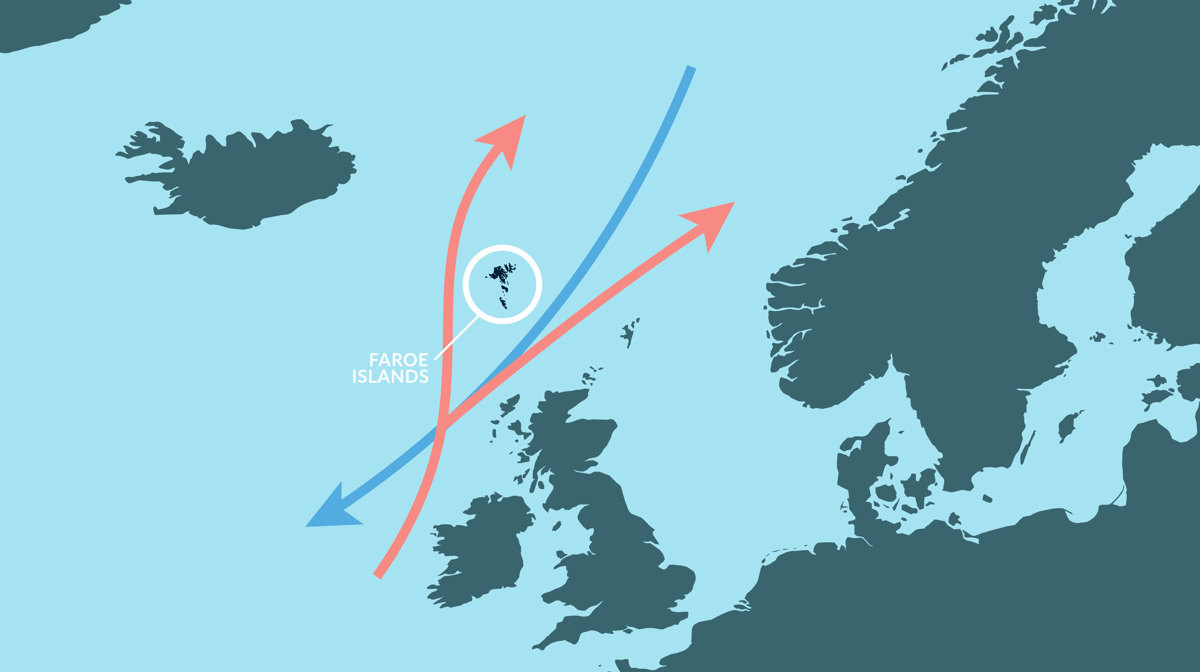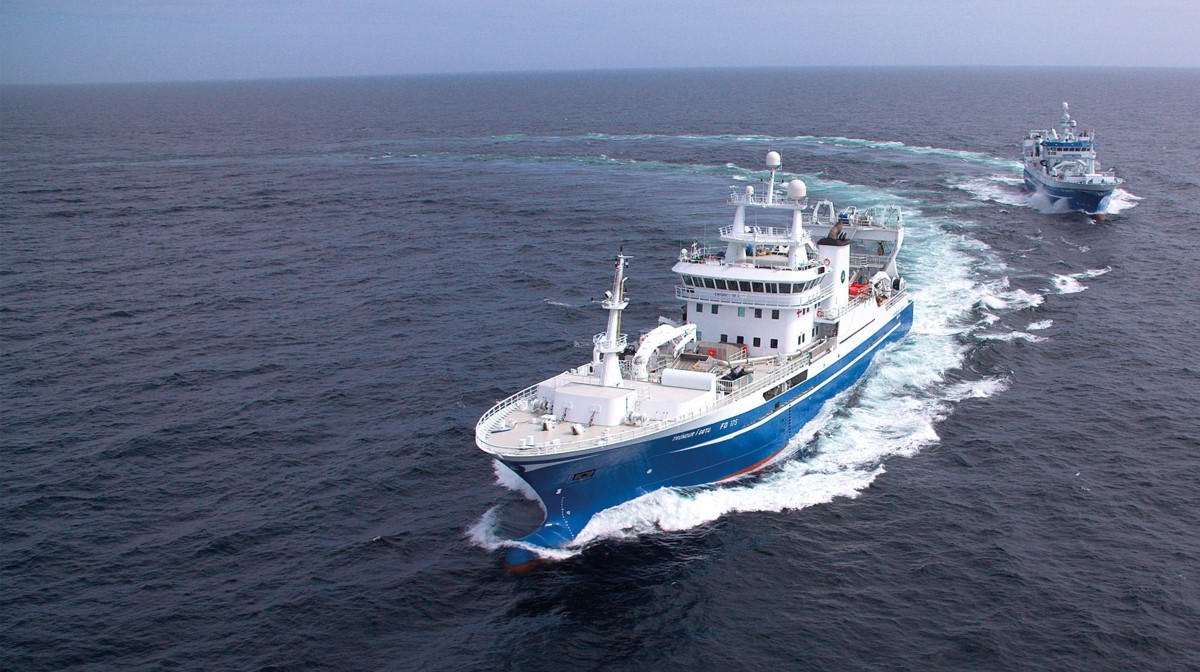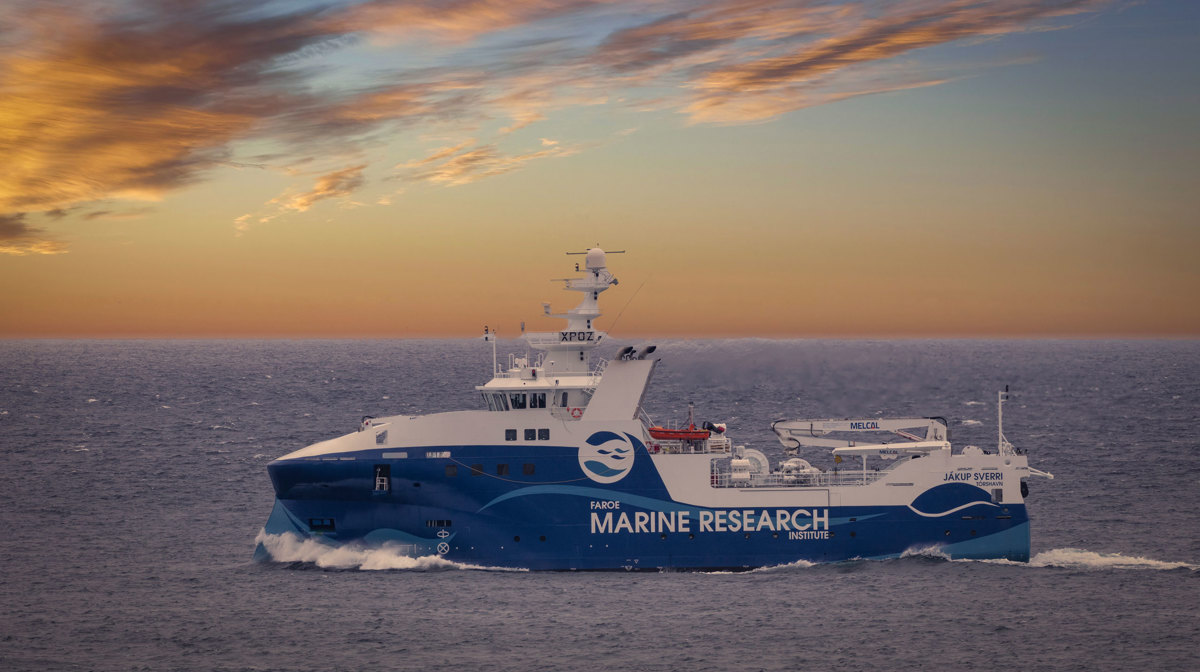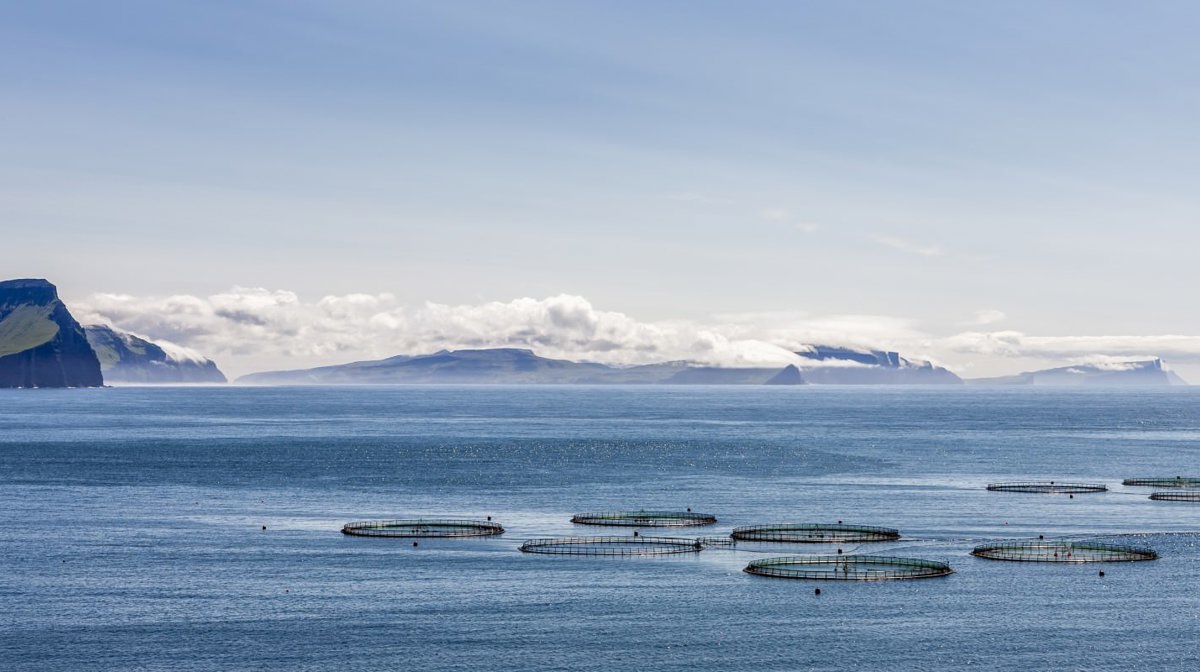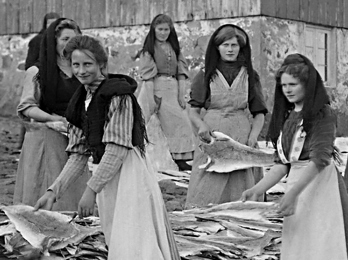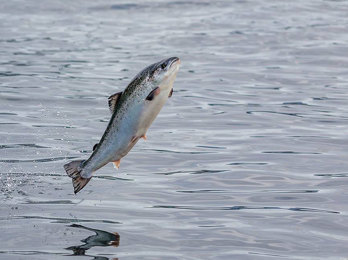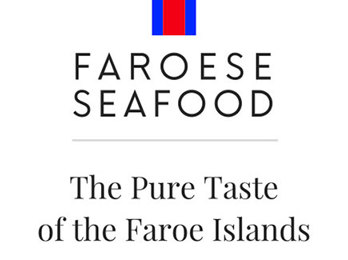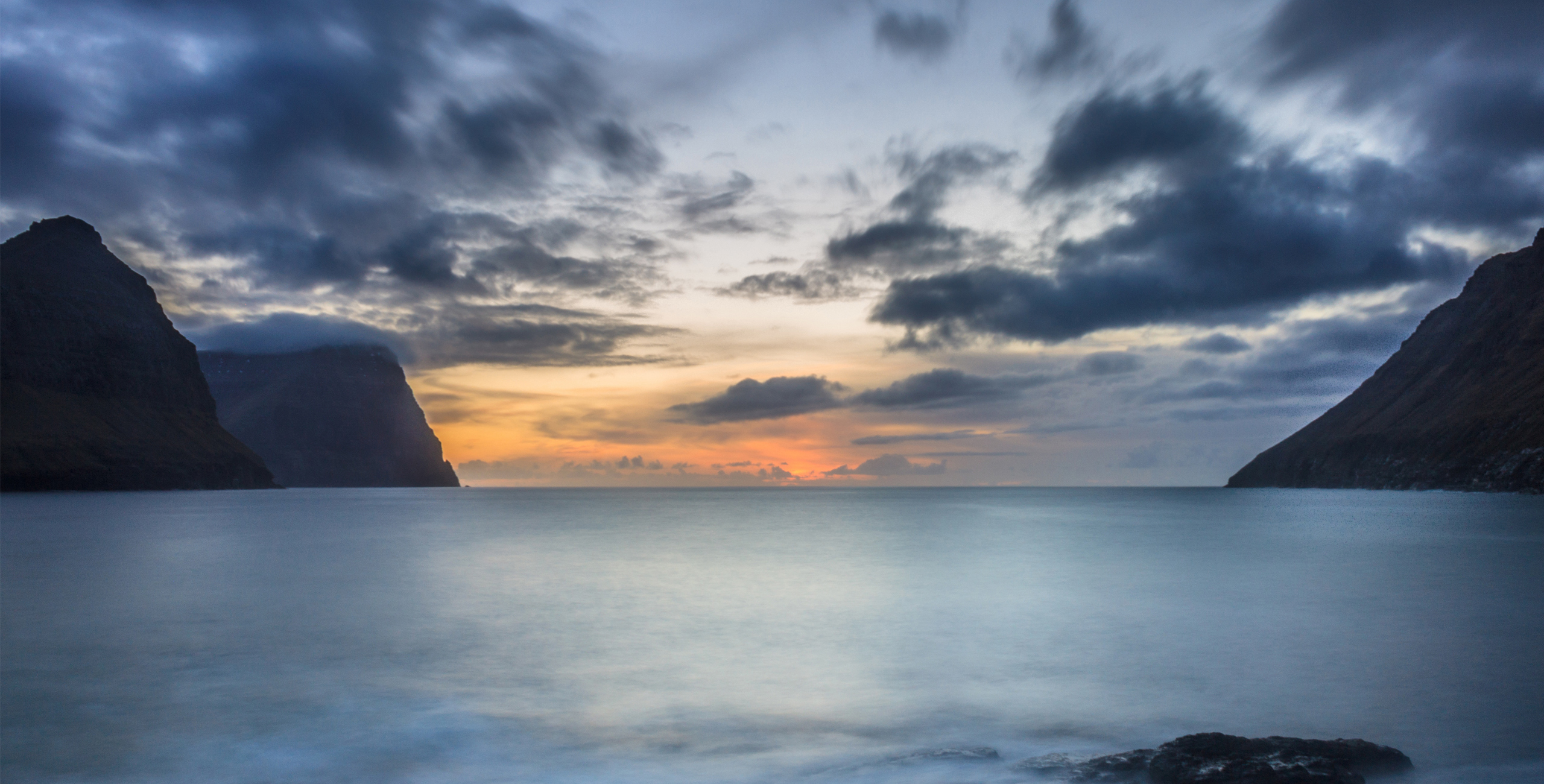
Warm Gulf Stream waters mix with an influx of colder polar waters in the seas around the islands, creating a highly productive and dynamic marine ecosystem.
Relying on the ocean around them, the Faroe Islanders have developed both the skills and the capacity to become one of the world’s foremost fisheries and aquaculture nations.
The Faroe Islands may be small in land mass and population, but the extensive fisheries and maritime area makes them a major stakeholder in international cooperation on marine-based sustainable development.
Seafood products, from both capture fisheries and aquaculture, account for about 95 percent of the total value of Faroese exported goods. In 2019, Faroese seafood exports were 625.000 tonnes, worth 9.5 billion DKK (1.3 billion EUR).
Per capita, the Faroe Islands are by far the largest producer of seafood in the world.
With a long tradition of fishing in foreign and international waters, the Faroese fishing industry has contributed to the development of many fisheries across the North Atlantic over the years.
Ensuring the sustainable utilisation of these resources requires sound science and effective international cooperation on the conservation and management of shared stocks.
The Faroe Islands participate actively in all relevant Regional Fisheries Management Organisations for cooperation on the management of marine resources in the North Atlantic, which include NEAFC, NAFO, NASCO and NAMMCO, in addition to SPRFMO in the South Pacific.
The Faroe Marine Research Institute, where international collaboration is also key, provides advice on sustainable catches, as well as studying marine ecosystems, the marine environment and the effects of climate change on the ocean and its resources.
The Faroese salmon farming industry has gone from strength to strength in recent years, accounting for around half of total Faroese seafood exports.
Natural ocean conditions are ideal for fish farming, and seaweed production in Faroese fjords is also showing promising prospects.
The Faroese Government has stringent environmental and bio-safety regulations to ensure that aquaculture remains sustainable and its products can maintain their internationally renowned high quality.
Free access to markets and the removal of tariffs and non tariff trade barriers on seafood are essential in underpinning sustainable fisheries and aquaculture, contributing to Blue Growth and ensuring a stable supply of quality protein for the benefit of global food security.
Maritime transport routes are bringing new opportunities for increased economic activity in and around the Faroe Islands.
With a long-standing seafaring culture and extensive maritime expertise, the Faroe Islands are well equipped to offer competitive services as a hub for the international maritime industry, both with cutting-edge know-how and skills, as well as with advanced harbour facilities and transport infrastructure.
The official website – www.FaroeseSeafood.com - gathers information on Faroese fisheries and aquaculture, the main fish species produced in the Faroe Islands, a directory of Faroese seafood exporters and a selection of recipes.
